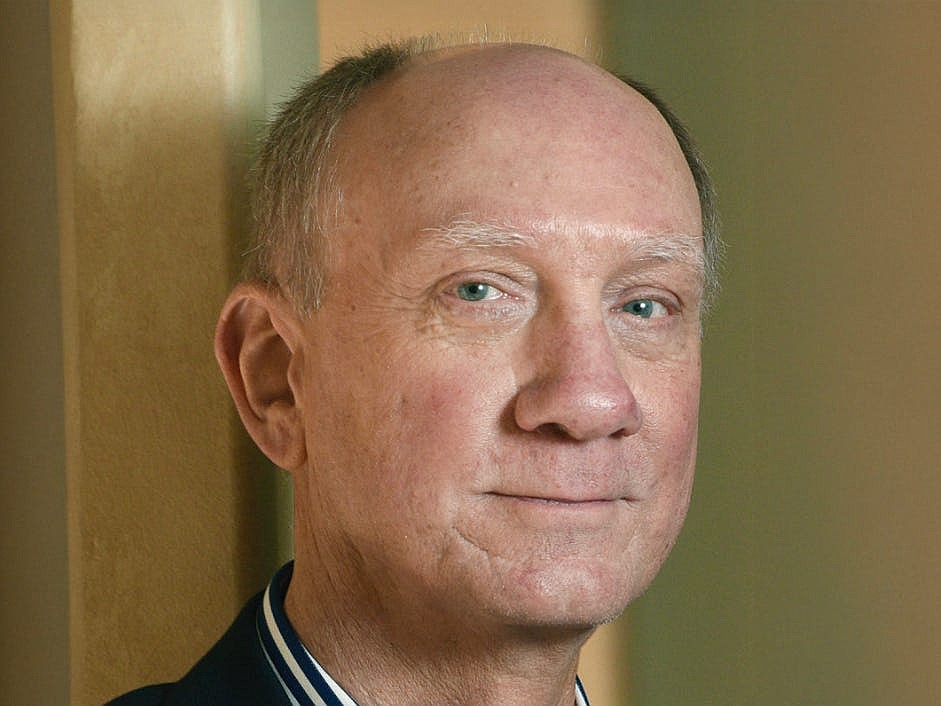How to land a consulting job these days, according to ‘Case in Point’ author Marc Cosentino
Marc Cosentino’s “Case in Point,” first published in 1999, has solidified its status as the quintessential guide for aspiring consultants, helping thousands navigate the challenging landscape of consulting interviews. Cosentino’s journey to authorship began in the late 1980s when he found himself at Harvard’s Office of Career Services after being laid off from Fidelity Investments. Over the next 18 years, he became a pivotal figure for students seeking careers in consulting and investment banking, earning the nickname “Keeper of the Dark Side.” His experience revealed that even the most talented students often struggled with confidence, critical thinking, and effective communication—skills essential for success in consulting interviews. Recognizing these challenges, Cosentino began coaching students through mock interviews and personal mentoring, which laid the groundwork for his future writing endeavors.
In 1997, after transitioning to Harvard’s Kennedy School, Cosentino seized the opportunity to write a book that would compile his extensive knowledge of the consulting interview process. With little existing literature on case interviews, he crafted “Case in Point” in just five weeks, aiming to demystify the interview process for candidates. Despite initial setbacks with distribution, including a lack of barcodes that limited sales, his self-published second edition quickly gained traction, becoming a bestseller at the Harvard Coop bookstore. Over the years, “Case in Point” has sold approximately 400,000 copies and has remained the top consulting book on Amazon for nearly two decades. Cosentino’s dedication to updating the book—now in its twelfth edition—reflects the evolving nature of consulting interviews, which now require candidates to tackle more complex scenarios, such as sustainability strategies and innovative business solutions.
Cosentino continues to engage with students and educational institutions, receiving feedback from readers who credit “Case in Point” for securing positions at prestigious firms like McKinsey, Bain, and BCG. As the landscape of consulting interviews becomes increasingly competitive, the core principles emphasized in his book—clear thinking, confident communication, and creative problem-solving—remain critical to success. Cosentino’s impact on the consulting field through “Case in Point” is undeniable, and his insights continue to inspire the next generation of consultants as they prepare for their careers.
https://www.youtube.com/watch?v=-zihLx0-DLM
Marc Cosentino wrote “Case in Point” in 1999. It remains the definitive guide to landing a consulting job.
Marc Cosentino/Burgee Press
Marc Cosentino
describes how his Harvard career led to writing “Case in Point.”
‘Case in Point’ is a bestselling resource for anyone interviewing for consulting jobs.
He coached Harvard students through consulting interviews, focusing on confidence and communication.
This is an interview with Marc Cosentino, the author of “Case in Point,” which has been the best-selling consulting case interview book worldwide for over two decades. This conversation has been condensed and edited for clarity.
When I started working at
Harvard’s Office of Career Services
in the late 1980s, I didn’t expect to spend the next 18 years helping students break into consulting. I had just been laid off from my job at Fidelity Investments. A few months later, I found myself at Harvard College.
At Harvard, I became the business counselor or, as the students liked to call me, “Keeper of the Dark Side.” About half the undergraduate class went through recruiting back then, mostly for consulting and investment banking jobs, and I was the one person who trained and coached them.
My biggest insight from those years was that even the most brilliant students often lacked confidence. You’d think that people with their kind of résumés would brim with it, but they didn’t. I probably spent 90% of my time building up their confidence. The second challenge was helping them think for themselves — not just critically, but independently. The third was communication. Even then, many students struggled to express ideas clearly and concisely.
At first, I worked one-on-one with every student — coaching, running mock interviews, and helping them navigate recruiting. I taught at
Harvard College
from 1988 to 1996, and it was during that time that I began writing guides to make the process easier. I wrote “The Harvard College Guide to Investment Banking” and “The Harvard College Guide to Consulting.” When you work for the Faculty of Arts and Sciences, though, anything you write belongs to them.
In 1997, I had an opportunity to switch over to Harvard’s Kennedy School to become their “Keeper of the Dark Side.” I told them that I’d make the switch, but I also wanted to be able to write a book and own it. They let me.
At the time, there wasn’t much out there on case interviews, even though consulting firms had been using them for decades. I had spent years sitting in on interviews, debriefing students, and talking to recruiters. I had all this insider knowledge — how interviews really worked, what students struggled with, and what firms looked for.
My book, “Case in Point,” became a way to put it all in one place.
I wrote the first edition of “Case in Point” in 1999 in just five weeks, working full time. It came out through a small educational publisher, but because they didn’t include a barcode, it couldn’t be sold in stores. I got the rights back, self-published the second edition in 2000, and never looked back.
At the time, it was $20 a book, so I was making a little under $10 for each copy sold.
I remember walking down to the
Harvard Coop bookstore
with a box of books and convincing them to take 10 copies on consignment. Two days later, they called and ordered 100 more. For the next three or four years, it was the Coop’s best-selling nonfiction book. Within six months, I was making more money from book sales than from my Harvard salary.
I tried marketing on Google for a little while, but it didn’t work out well. It was all word of mouth. I was also traveling a lot, going to a lot of schools — that’s how the book’s reputation grew.
It’s been the bestselling case interview book in the world for 25 years — and the top consulting book on Amazon for about two decades. It even hit number 37 overall on Amazon when The Wall Street Journal wrote about me in 2012. That happened to be the day Hurricane Sandy hit the East Coast. I like to think I could’ve cracked the top 25 if not for the storm.
Throughout the years, “Case in Point” has sold around 400,000 copies in total. During its peak — between 2010 and 2018 — I sold 25,000 to 30,000 copies a year. These days, I sell closer to 12,000. I still make about $14 to $15 in profit per copy, which allows me to live comfortably in Santa Barbara.
I’ve updated the book 12 times because the field evolves. Each edition includes new cases, more data analysis, and new sections on topics, like résumés, cover letters, and creativity.
Case interviews
today are more sophisticated — they’re not just profit and loss anymore. You might be asked to analyze a returns policy or a sustainability strategy. I like to say I craft cases, not just write them, because each one has a lesson built in.
I still work with students and universities, and I hear constantly from readers who’ve used the book to land jobs at
top consulting firms
like McKinsey, Bain, and BCG.
The interviews have gotten tougher, but the fundamentals haven’t changed. Firms still look for people who can think clearly, communicate confidently, and bring creative ideas to the table.
Read the original article on
Business Insider
Eric
Eric is a seasoned journalist covering Business news.



